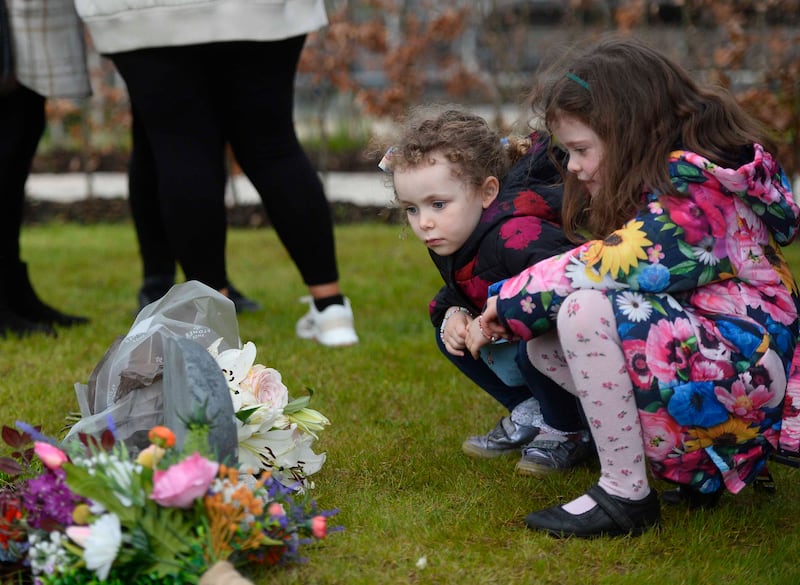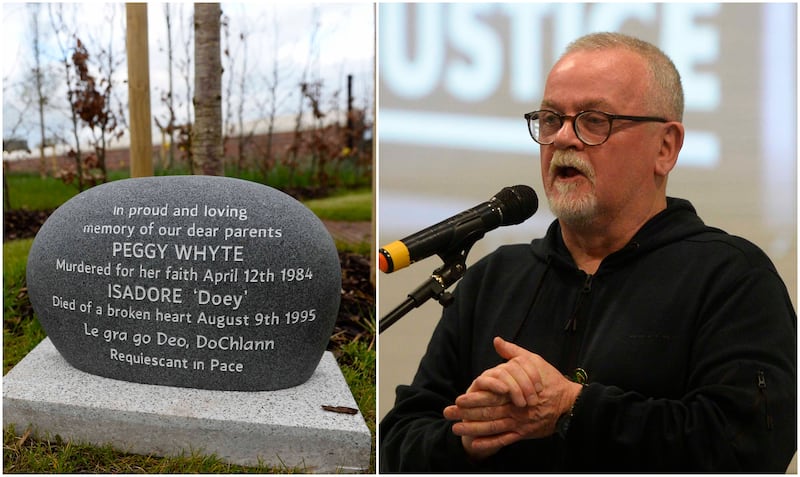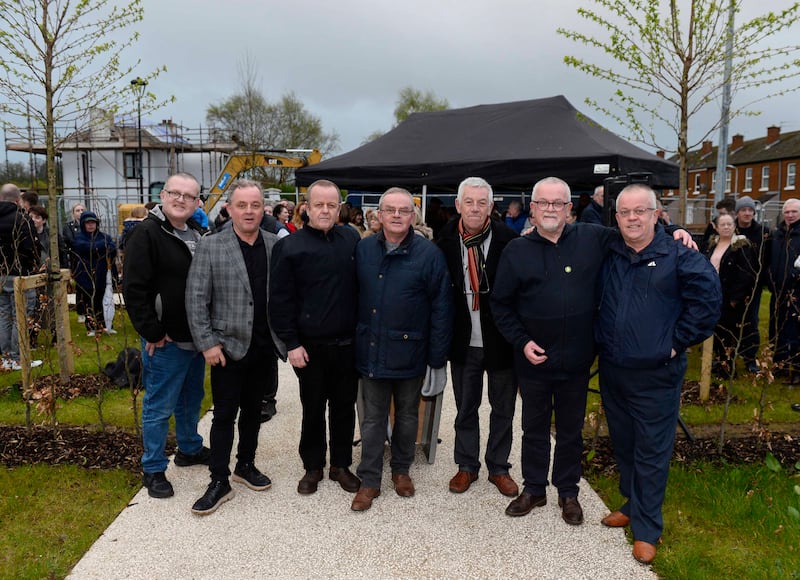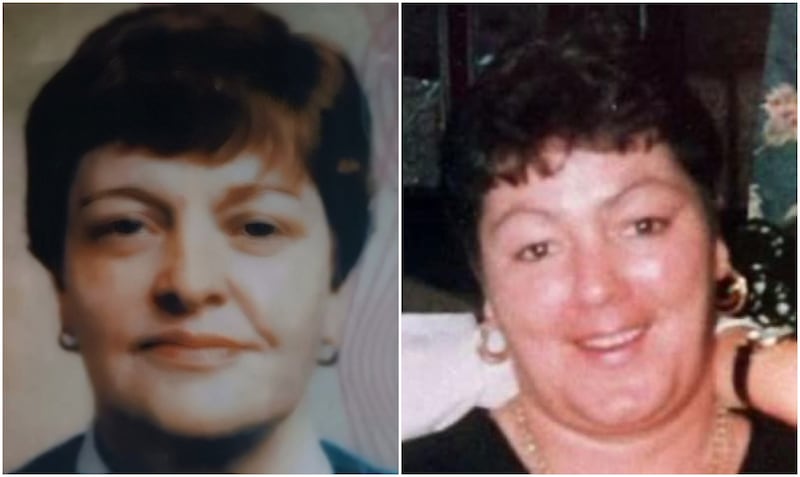The son of a woman murdered in a UVF bomb attack on her south Belfast home has said the Catholic community living in the Lower Ormeau Road area were one of the most targeted during The Troubles.
Jude Whyte said his mother Peggy was one of 59 Catholic civilians from the area murdered during the conflict.
The 52-year-old mother-of-ten died when a bomb exploded outside her University Street home on April 12 1984.
Michael Dawson, a 23-year-old police officer, was also killed by the blast.
Mr Whyte and his six surviving siblings gathered on Friday to unveil a new memorial stone to mark the 40th anniversary of their mother’s murder.
The stone, which also carries the name of their late father Isadore ‘Doey’ Whyte, is located in the new community garden developed along the River Lagan.
Around 350 people gathered for the event, including relatives of those killed in the May 1974 UVF bomb attack on the nearby Rose & Crown bar, which claimed the lives of six people.

Jude Whyte said he was moved by the large number of people who had attended the event.
“It was just typical of the Lower Ormeau Road, a community that was abused and degraded and humiliated, and they’re still as stoic and as proud as they ever were,” he said.
“It’s appalling, 59 Catholic civilians were murdered in a community of 2,400 people. It’s unbelievable.
“Per thousand people, it easily has the highest death rate of anywhere during The Troubles.”
The April 1984 bomb attack on the Whyte household, which left the family homeless, was the second time loyalists had tried to blow up the property.
A UVF bomber was significantly injured a year earlier, when the device he was trying to plant exploded prematurely.
Peggy Whyte had comforted the injured man with a pillow and blanket.

Recalling the impact of the 1984 murder on his family, Mr Whyte said: “We were essentially homeless after that, so the vast bulk of us moved out of the area.
“That was the last night in the Ormeau Road. I would love in many ways to move back to that area, because it’s where my heart is.
“My heart has never left the place. I just love the community.”
He said the killing devastated his father Isadore, who died 11 years later.
“He died of a broken heart, he couldn’t survive without her.”

Friday’s event included presentations and speeches in the Shaftesbury Leisure Centre, some of which drew on the controversial new Troubles legacy bill.
Jude Whyte has consistently stated he has no interest in seeing those responsible for his mother’s murder going to jail.
“If I knew right now definitely who was responsible and could stand up in a court and prove it, I would keep that information to myself,” he said.
“I have no interest in some middle-aged man going to jail.
“To that individual, if he is alive, his secret would be safe with me.”

But he would still like to know the truth, and he has questions over the potential role of the state and “those who controlled the information”.
“In many ways I see the loyalist working class as pawns in this game.”
Mr Whyte was also among those who gathered in the Lower Ormeau on Sunday afternoon for an event to mark the 30th anniversary of Theresa Clinton’s murder.
The 34-year-old mother-of-two, whose husband Jim was a former Sinn Féin council candidate, was shot dead by the UDA while watching TV in the living room of their Balfour Avenue home on April 14 1994.
The killing was the subject of a 2022 investigation by the Police Ombudsman that identified significant investigative and intelligence failures as well as “collusive behaviours” by the RUC in relation to a series of murders and attempted murders by the UDA/UFF in south Belfast in the 1990s.
The murders referenced in the report included the attack on Sean Graham bookmakers that claimed five lives.
On the legacy bill, Jude Whyte said: “Maybe us victims should now get to the stage where this fight has been lost.
“And even if the legacy act wasn’t there, these events are going back two generations really.
“When mum was murdered there were two grandchildren. There are now 24 grandchildren and 27 great-grandchildren.”








